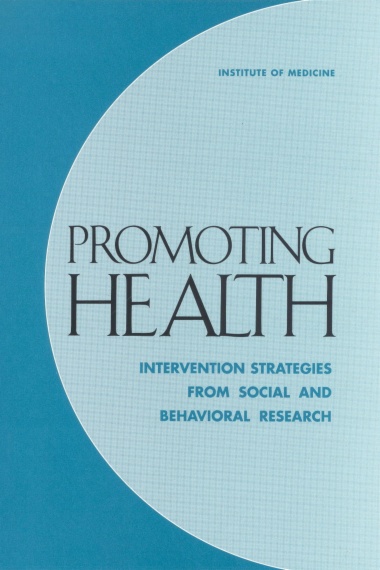

At the dawn of the twenty-first century, Americans enjoyed better overall health than at any other time in the nation's history. Rapid advancements in medical technologies, breakthroughs in understanding the genetic underpinnings of health and ill health, improvements in the effectiveness and variety of pharmaceuticals, and other developments in biomedical research have helped develop cures for many illnesses and improve the lives of those with chronic diseases.
By itself, however, biomedical research cannot address the most significant challenges to improving public health. Approximately half of all causes of mortality in the United States are linked to social and behavioral factors such as smoking, diet, alcohol use, sedentary lifestyle, and accidents. Yet less than five percent of the money spent annually on U.S. health care is devoted to reducing the risks of these preventable conditions. Behavioral and social interventions offer great promise, but as yet their potential has been relatively poorly tapped. Promoting Health identifies those promising areas of social science and behavioral research that may address public health needs.
It includes 12 papers—commissioned from some of the nation's leading experts—that review these issues in detail, and serves to assess whether the knowledge base of social and behavioral interventions has been useful, or could be useful, in the development of broader public health interventions.